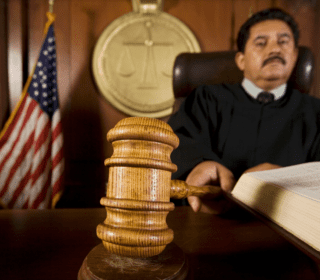7 Things to Know about Bail Bonds
 Here are seven important things to know about bail bonds. If you are looking for bail bond, All About Bail Bonds provides the same in Dallas, Fort Worth, Austin, Harris County, San Antonio, Kingwood, TX.
Here are seven important things to know about bail bonds. If you are looking for bail bond, All About Bail Bonds provides the same in Dallas, Fort Worth, Austin, Harris County, San Antonio, Kingwood, TX.
- Definition of a Bail Bond: A bail bond is a financial guarantee provided by a bail bondsman or bail bond agency on behalf of a defendant. It allows the defendant to be released from jail before their court trial by paying a percentage of the total bail amount set by the court.
- Purpose of Bail Bonds: Bail bonds are designed to ensure that defendants appear in court for their scheduled hearings and trial. By posting a bail bond, defendants can secure their release from jail while awaiting their court proceedings. It provides an alternative to spending time in jail until the trial concludes.
- Cost and Fees: When obtaining a bail bond, the defendant or their family typically pays a non-refundable fee, usually a percentage (around 10%) of the total bail amount set by the court. This fee covers the services provided by the bail bond agency. In some cases, collateral may be required as additional security.
- Responsibilities of the Co-Signer: A bail bond requires a co-signer, often referred to as an indemnitor, who is responsible for ensuring that the defendant appears in court as required. If the defendant fails to appear, the co-signer may be held financially liable for the full bail amount and may lose any collateral put up for the bond.
- Forfeiture of Bail: If the defendant fails to appear in court, the bail may be forfeited, and the co-signer may be required to pay the full bail amount to the court. This is known as bail forfeiture, and it can have serious financial consequences for the co-signer.
- Bail Bond Conditions: When a defendant is released on bail, they must comply with certain conditions set by the court. These conditions may include regular check-ins, travel restrictions, attending required court appearances, and refraining from engaging in illegal activities. Violating these conditions can result in the revocation of the bail bond and the defendant being returned to custody.
- Bail Bond Exoneration: A bail bond is exonerated once the defendant completes their court proceedings, including all required appearances and the resolution of the case. At this point, the bail bond is discharged, and any collateral provided is returned to the co-signer, minus any fees owed to the bail bond agency.
Remember that bail bond practices and regulations can vary by jurisdiction, so it’s essential to consult with a local bail bond agency or legal professional to understand the specific rules and processes in your area. Please feel free to give us a call.

